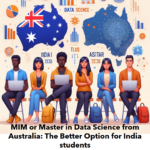A Comprehensive Guide to Pursuing Dentistry and Medicine Abroad: UK, Ireland, Australia/New Zealand, and Hong Kong
Embarking on the journey of applying for dentistry or medicine programs overseas can be a challenging yet rewarding endeavor. Whether you are a prospective student or a parent looking for information, this guide aims to provide valuable insights and tips to navigate the application process for these healthcare fields in countries like the UK, Ireland, Australia/New Zealand, and Hong Kong. Although the focus is primarily on dentistry, many of the tips apply to both dentistry and medicine applications.
- Researching Universities: Before diving into the application process, it’s crucial to research and shortlist universities. Here are key factors to consider during your university research:
- Understand the required clinical test format (e.g., BMAT, UCAT, UCAT ANZ) and its testing cycle.
- Know the cutoff points for clinical test results.
- Check GCSE grade requirements.
- Be aware of A-level/polytechnic/IB subject and grade prerequisites.
- Consider the shortlisting criteria for interviews, including the weightage given to various factors like GCSE grades, UCAT/BMAT scores, situational judgement, and personal statement.
- Determine the number of places offered to international students annually.
- Take into account the course rankings and the university’s reputation.
- Check if the university is approved by med/dent schools in Singapore, especially if you plan to return.
- Evaluate the surrounding environment, including city life, safety, and the cost of living.
- Calculate the overall course cost, including tuition fees.
This information can typically be found on each university’s course page on their official website. You can also refer to resources like the SMSUK annual university handbook for UK universities or IUMC’s website for Ireland medical and dental schools.
- UCAT – University Clinical Aptitude Test: Most overseas healthcare programs, both dentistry and medicine, require applicants to take the UCAT (or UCAT ANZ for Australia and New Zealand). Here’s what you need to know:
- UCAT is a computerized multiple-choice assessment consisting of five segments: Verbal Reasoning, Decision Making, Quantitative Reasoning, Abstract Reasoning, and Situational Judgement.
- You must create an account and schedule your UCAT test date and center through the official UCAT websites.
- Aim to take the UCAT at least two months before your final exams, such as IB or A-levels.
- In Singapore, you can choose between two test centers: Pearson Professional Centre and NTUC Learning Hub.
- Consider subscribing to online assessment preparation courses like Medify or Medentry for extra practice.
- UCAT test results are available immediately after your assessment.
- Note that starting from this year, Singapore LKC School of Medicine also requires applicants to take the UCAT.
- BMAT – Biomedical Admissions Test: Certain institutions may require the BMAT (Biomedical Admissions Test) for applications. While it’s more common for medicine programs, some dental schools, like the University of Leeds in the UK, may use the BMAT. Here’s what you need to know about the BMAT:
- BMAT is an in-person assessment in Singapore, and you will be assigned a test center near your home address.
- There are two test cycles available, but the safest choice is the October cycle, which is widely accepted for university applications.
- For A-level students, the October BMAT often falls just before or during the first week of A-level exams.
- BMAT consists of three sections: Thinking Skills (IQ test and logical reasoning MCQ), Scientific Knowledge (O-level Biology, Chemistry, and Physics questions), and a Writing Task (essay with applications to medical or veterinary scenarios).
- To prepare for the BMAT, consider using the question bank provided by the Cambridge Assessment Board or online preparation courses like BMAT Ninja.
- BMAT results are typically released in November or December.
- UK Applications – UCAS (Universities and Colleges Admissions Service): UCAS is the central application portal for UK universities. After receiving your UCAT scores, you can narrow down your choices to four universities for dentistry or medicine through UCAS. Here’s what to keep in mind:
- Understand the specific entry requirements and interview criteria for each university (as discussed in point 1).
- Determine which universities are most likely to offer you an interview based on your UCAT scores.
- The application deadlines for dentistry and medicine programs are notably early, often around October 5th, so make sure to apply in a timely manner.
- Inform your teachers early if you plan to apply for UK medical or dental programs to ensure they have enough time to write your recommendations.
- Ireland Applications – IUMC (Irish Universities and Medical Council): If you’re considering studying medicine or dentistry in Ireland, you’ll need to apply through IUMC Singapore. Here’s what you need to know:
- Email IUMC Singapore, expressing your interest in the course you want to apply for.
- IUMC will provide you with information brochures containing all the details you need to apply.
- Ireland applications do not have fixed start dates or deadlines. You can apply alongside your UK applications or after your A-level results are released in February.
- Interviews typically occur in May, so applications should conclude by late April for those with exams in 2023.
- Note that Trinity College Dublin has specific subject requirements for dentistry applicants, including A-level H2 Math and H2 A-level Physics in the first year.
- Hong Kong Applications: The University of Hong Kong offers highly ranked medical and dental courses. To apply, follow these steps:
- Applications are done through the international/non-JUPAS route.
- Check the application deadlines, which are usually around mid-November (after UK UCAS applications).
- Be aware that the grade requirements for Singapore A-level applicants may be higher than stated on the HKU website.
- Australia/New Zealand Applications: While the application process for Australia and New Zealand varies by university, here are some general guidelines:
- Applications are typically submitted individually to each university through their respective application portals.
- New Zealand applications close in September, while Australian applications close around June (specific dates may vary).
- For those interested in the University of Otago Dentistry in New Zealand, you’ll first need to complete a compulsory Health Sciences foundational one-year course before applying to the BDS program.
- Personal Statement and Interviews: Crafting a compelling personal statement and preparing for interviews are crucial steps in the application process:
- Your personal statement should highlight your academic interests, internship experiences, and your passion for dentistry or medicine.
- Internship experiences are increasingly important, so plan ahead to secure internships at clinics and hospitals.
- While preparing for interviews, familiarize yourself with the General Dental Council guidelines for dental practice (for dentistry) or Good Medical Practice (for medicine).
- Be ready to answer standard interview questions about your motivation to study dentistry or medicine and why you’re interested in a particular university.
- Practice ethical and moral dilemmas, drawing from your UCAT situational judgment content.
- Application Agents: Consider utilizing application agents to guide you through the application process. Some notable agencies in Singapore include Crimson Education, TheRightU, IDP, and Jackstudyabroad. These services are typically free and can provide valuable support from application to receiving your university offer.
Applying for dentistry or medicine programs overseas is a significant undertaking, but with thorough research, careful preparation, and the right support, you can increase your chances of success. Best of luck to all applicants and those preparing for final exams or A-levels! If you have any additional information or questions, feel free to share in the comments.


